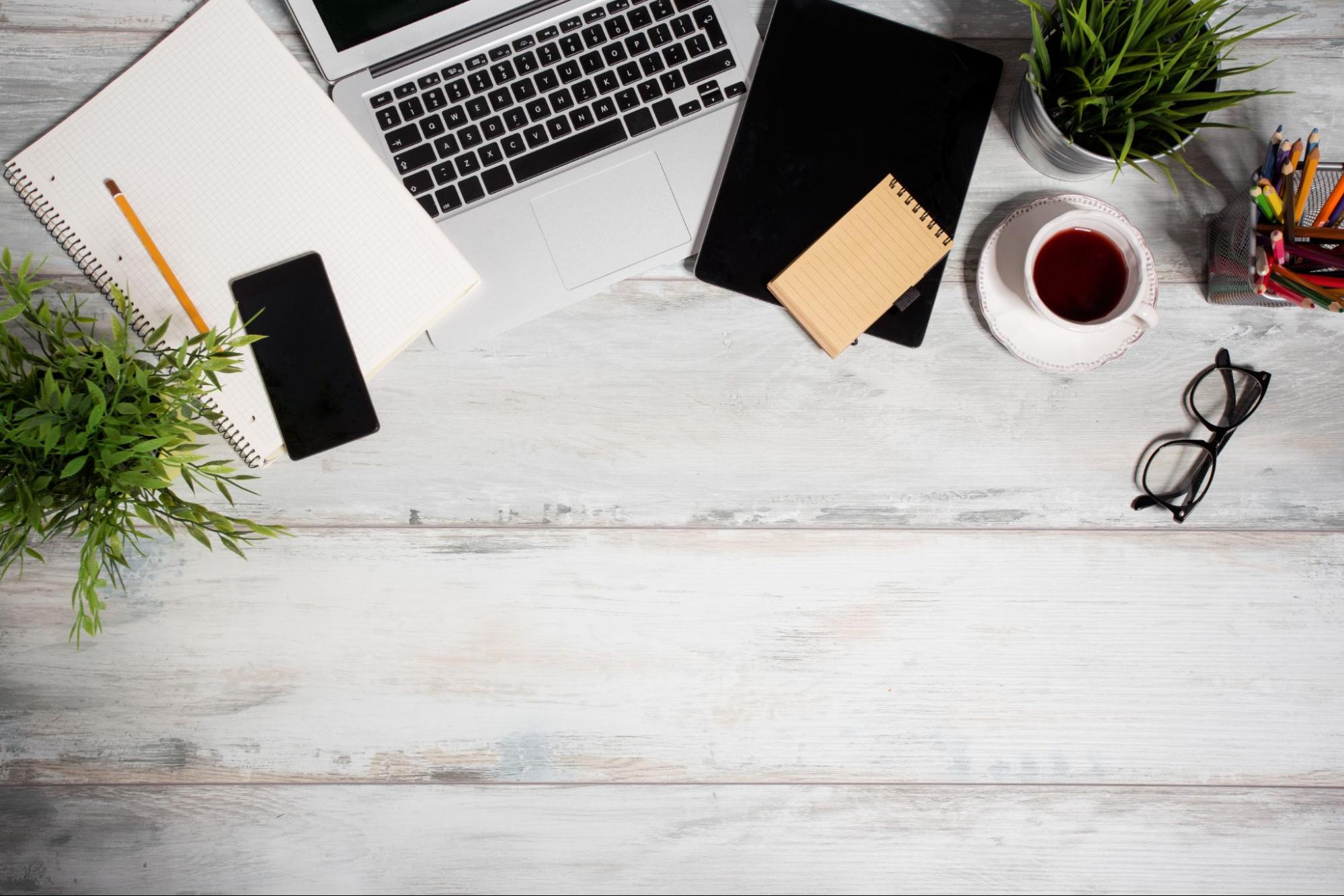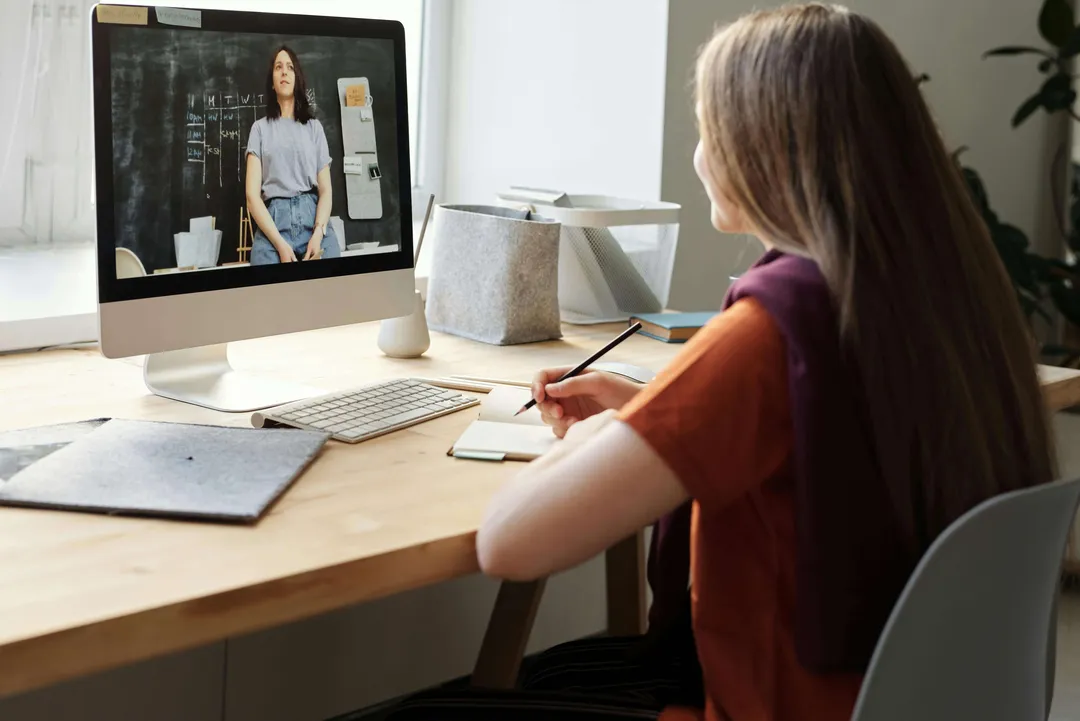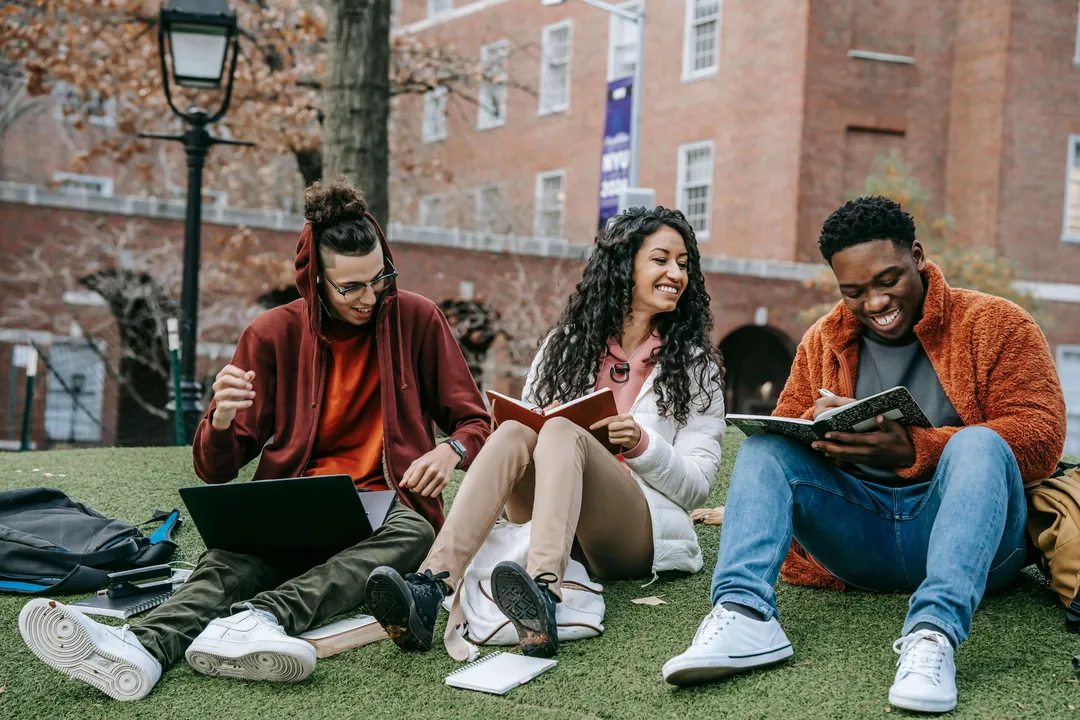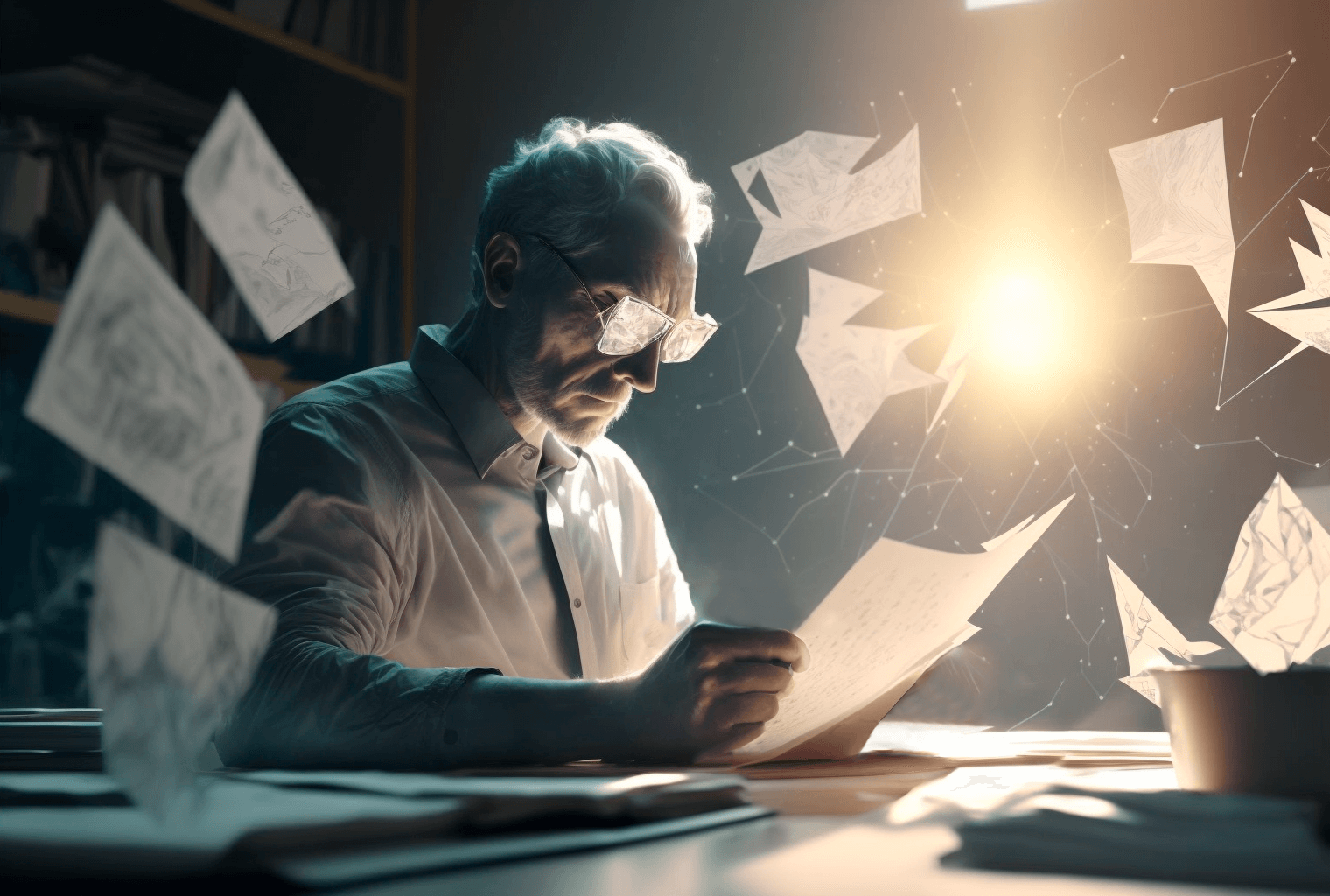Focus In The 21st Century

Have you recently found yourself scrolling aimlessly through social media, wondering why you’re unable to focus on work, school, or hobbies? You’re not alone - over the past few decades, our collective ability to focus has slowly diminished.
The internet has made vast quantities of information available at our fingertips, but it’s also filled with the possibility of distraction. Social media platforms are designed to constantly feed us new content, with short, skimmable posts and videos that can be consumed in just a few seconds. This has created a culture of instant gratification where users expect all content and information to be made accessible at the push of a button.
When a lack of concentration affects your productivity and makes it difficult to achieve your goals, it can be very frustrating. Understanding what’s causing this inability to focus is the first step to fixing the problem. In this article, we’ll take a look at why it’s so hard to focus right now, as well as tips to focus and improve concentration in spite of all the distractions currently available to us.
Why can’t I focus?
If you’ve been thinking “I can’t focus on anything” more often than normal recently, you’re not alone. There are a variety of societal factors that have come together in recent years to create the perfect storm of distraction. Here are some of the reasons why it feels harder to focus now than ever before.
Advancing technology
As consumer technology has become more advanced, it means that entertainment is available at the click of a button. There are endless options to choose from, whether it’s TV shows, video games, social media content, or just aimless web browsing. When the entertainment you love is available right at your fingertips all the time, it can be difficult to stay focused on important work tasks.
Many people also have this entertainment available on the go thanks to smartphones, tablets, and laptops. These items are more accessible now than ever as budget options have entered the market and overall costs are going down. This makes it even harder to disconnect while out and about.
Remote work and school
Remote work and education options were available prior to 2020, but they became widespread when the COVID-19 pandemic hit. The spread of COVID-19 has slowed down in many parts of the world, but remote work has continued.
While working remotely has many benefits, it also presents some unique challenges in terms of distraction. Without coworkers around, it’s easy to get sucked into all the temptations of the internet. Family members, roommates, and pets can make it even more difficult to stay focused. For students, Assignment24 can help minimize the stress of remote classes. Through this platform, students can get support on a variety of tasks with the help of academic freelancers. At Assignment24, we understand that university classes can be very stressful. We want you to have an enjoyable college experience, so don’t hesitate to contact us if you ever need help with an assignment. Click the button below and one of our experts will be happy to assist you!
Social media and short dopamine cycles
Social media apps like Facebook, Instagram, and TikTok are more than just a major distraction - they’ve also rewired the way we think. These apps are designed to be addicting, as they constantly refresh and upload more data, allowing you to scroll endlessly. Because users are always posting new content, it can be tempting to check social media platforms constantly to make sure you don’t miss anything.
More specifically, social media has shortened the dopamine cycles in our brains. Our brains release dopamine when we engage in positive behaviors, whether that’s eating, exercising, or having positive social interactions. Dopamine makes us feel good, which motivates us to continue engaging in these behaviors. This means that every time we get a message or someone likes our post on social media, we get a dopamine hit, which motivates us to continue spending time on social media.
Lack of in-person connection
With people spending more time than ever online, digital communication has replaced in-person interaction in many cases. This means that people are relying on the internet for everything from professional networking to friendship to romantic and sexual interactions, which can be very isolating.
Many people invest in parasocial relationships via social media, which are one-sided relationships with celebrities or social media influencers. These are particularly common on platforms like Twitch or OnlyFans, where viewers start to feel very connected to the content creators they follow. Widespread access to pornography online can also serve to further isolate people romantically and sexually, in addition to serving as a major distraction.
High stress levels
When we feel stressed, it can make it even harder to focus on important tasks. Research indicates that we’re feeling more stressed than ever and mental health issues are at an all-time high. Economic, political, and climate concerns are ever-present, and isolation as a result of COVID-19 policies can also have a negative effect on mental health. Inflation is happening around the world and wages haven’t kept up, creating a huge amount of economic strain. Additionally, wars and other political conflicts have come to a head in many places. Combine that with the everyday challenges of work and school and it’s easy to see why such a large percentage of the population is dealing with anxiety.
When we feel stressed, it’s easy to use artificial digital rewards to make us feel better temporarily. However, this usually increases stress levels in the long run and can also lead to anxiety and depression. Things like video games, social media, and watching porn feel good in the interim, but are no substitute for fulfilling relationships and reaching your goals in real life. Ultimately, these digital rewards compound the cycle of stress you are in.
What happens when we are easily distracted?
Having trouble focusing can negatively affect your life in many different ways. One of the most serious negative effects of this is poor performance at school or work. While many people struggle with a lack of focus, employers and academic institutions continue to have high expectations. Constant distraction can make it hard to keep up and achieve your goals.
Outside of work and school, these distractions can also affect our ability to engage in other healthy behaviors. When we’re sucked into online distractions, we may not want to participate in hobbies or make new friends. This can have a very negative effect on overall mental health. For those already struggling with mental health issues, online distractions can exacerbate the problem. For example, social media can cause us to constantly compare ourselves to others, which can lead to very negative self-esteem.
On top of this, digital distractions can also lead to poor sleep. Smartphones and computers emit large quantities of blue light, which negatively affect our sleep cycle. This creates a vicious cycle, as an inability to sleep can negatively affect your mood and make it even harder to focus the next day.
How can we improve our focus?
While our collective loss of focus as a society is certainly concerning, it’s not inevitable. There are steps that anyone can take to improve their ability to concentrate. Many of these are simple changes that you can make throughout your day with a bit of attention. Over time, an increase in focus can help you be more productive during the day, and it can also improve your mental health. Here are some tips on how to improve focus and improve concentration.
- Use productivity timers while working. The Pomodoro method is a particularly effective focusing technique to increase your productivity. With this method, you’ll work in 25 minute increments, taking five minute breaks in the middle. Scheduling times for designated tasks as well as breaks can help you avoid distractions and stay motivated.
- Find an accountability partner. Many people benefit from external motivation when trying to reach a new goal. If you’re working on something personally or professionally, ask someone in your life to be your accountability partner and check in on your progress. Strengthening these personal relationships can help you push through distraction.
- Don’t be afraid to ask for help. If you feel like there’s too much on your plate, don’t try to force yourself to push through it. This will increase your stress levels, which can make it even harder to focus. When you feel yourself getting overwhelmed, don’t be afraid to look for extra support. This could be asking your friends and family for a favor or outsourcing some tasks at work. If you’re struggling with schoolwork, Assignment24 can take the most challenging tasks off your plate so you can recover.
- Track and limit your phone usage. Smartphones are a major source of distraction for many people. To combat this, start by tracking your smartphone usage. When do you spend the most time on your phone and what apps are the most distracting? Once you understand these distractions more thoroughly, you can set timers using digital wellbeing tools on your phone. This gives you a limited amount of time to enjoy your apps throughout the day before you lose access.
- Set boundaries with yourself and others. Setting boundaries and sticking to them are key to preventing distraction. Block off time on your calendar to tackle challenging work or school tasks. During this time, put your phone in another room and shut off messenger apps on your computer. It’s also important to set boundaries with coworkers regarding messages after work hours. If you can, consider taking time each day to enjoy an activity you love without your phone.
- Wind down without your devices. Getting good sleep each night is key to preventing distraction. Try to put your phone and computer away at least one hour before bed each night. If you’re still struggling to fall asleep, stretching, reading, meditation, or listening to soothing music can all be helpful. Additionally, consider using a traditional alarm clock rather than setting an alarm on your phone. This will allow you to wake up calmly in the morning without immediately opening your phone.
- Spend time outside. Being in nature can calm the mind and help improve focus. Take time when you can to go for walks or just relax in a nearby park, ideally without bringing any electronics. Really take the time to observe what’s around you - this can be a meditative process that helps improve your focus and mental health.
- Find mental health support when you need it. If you’re struggling with depression, anxiety, or other mental health issues, don’t feel like you have to face it alone. A therapist can help you navigate tough times and keep your stress levels in check.
Final thoughts
The digital distractions that negatively affect our focus aren’t going away. Regaining your concentration is something you will need to make a conscious effort to do. It may take some trial and error to determine which strategies work best for you. The key is to be consistent and not give up - over time, new habits will start to stick.
With the prevalence of online distractions in our modern world, what will you do to find your inner focus?











